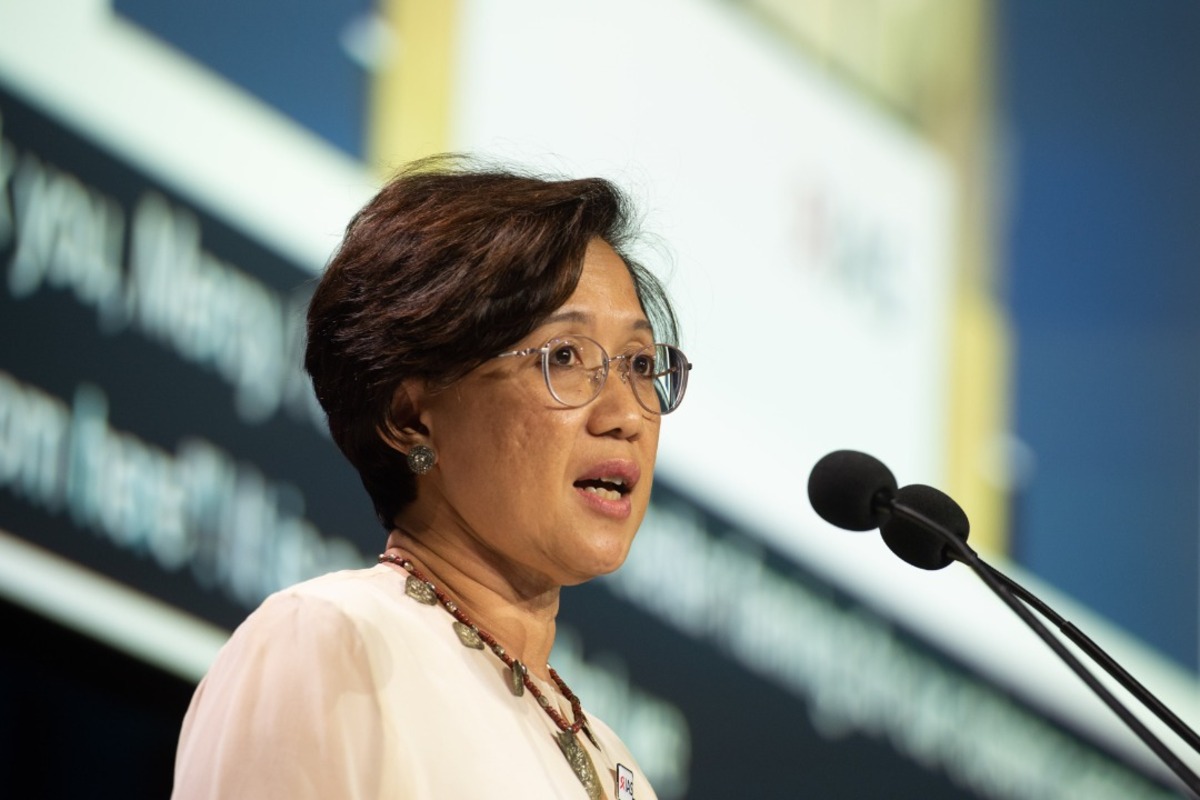KUALA LUMPUR, Dec 30 – Banning visitors from China will not prevent a Covid-19 outbreak in Malaysia or the entry of new and potentially dangerous variants, infectious disease and public health experts say.
Instead, they stress enhancing local measures like disease surveillance, booster vaccination with the mRNA vaccine, masking, ventilation, and early treatment.
Prof Dr Adeeba Kamarulzaman from Universiti Malaya pointed out that the United Kingdom, for example, is reporting rising infections, reaching more than 6,500 Covid cases on a seven-day average last December 22.
“So just singling out China probably doesn’t make much sense at this stage,” Dr Adeeba told CodeBlue yesterday.
“In terms of border control, we know that in the past that this is not going to be very useful in terms of not allowing people from China to come in because there are cases in other parts of the world as well.
“Better to put our effort in getting more people, especially the vulnerable, boosted and ensure early treatment. But if we feel like we need to do something, then RTK test them [visitors from China] on arrival.”
The infectious disease expert pointed out that although the current situation with China’s huge Covid wave — even as China has decided to reopen borders from January 8 — might seem like a “bad replay” of December 2019/ January 2020 when the virus was first reported in the Chinese city of Wuhan, she stressed that people now know so much more about the disease.
“And we have so many more tools to ensure that we don’t have the kinds of outbreaks and huge surges like what we did in 2020/ 2021.”

Prof Dr Sanjay Rampal, a professor of epidemiology and public health at Universiti Malaya, said it was likely that new variants would develop and circulate if there was a large wave of infections in China, which is currently battling an Omicron surge, based on numbers of people at risk.
“The more important question, though, is whether they would cause more severe disease. The current Chinese experience is very different from the rest of the world due to their prolonged use of a Zero Covid policy. This may even result in a different epidemiological characteristic of a strain in China compared to other countries,” Dr Sanjay told CodeBlue.
“There is a likelihood of a new strain in the coming months that may cause more severe disease, but it currently does not justify the increased cost associated with implementing new Covid-19 SOPs (standard operating procedures).”
Dr Sanjay stressed that it was still too early to change any of Malaysia’s current Covid SOPs, when asked whether the government should reintroduce mandatory masking as well as vaccine mandates for third and subsequent shots.
“This is because the cost benefit of any change will likely be low as there is no evidence of any changes in the disease severity of Covid-19 based on global strains. We should make informed decisions and avoid being influenced by the fear of the unknown.”
Dr Sanjay said in-coming travellers from China should be vaccinated prior to arrival and show proof of MySejahtera registration on arrival. The public health physician, however, recommended that symptomatic travellers from whichever country be tested on entry into Malaysia, rather than all visitors arriving from China regardless of whether they show symptoms.
It would be enough for positive cases to self-isolate, instead of being sent to designated facilities amid insufficient evidence for stricter protocols. Dr Sanjay said the MySejahtera app with geofencing could be used to check compliance.
“Testing a sample will also help estimate a test positivity rate of the travellers,” he said.
“In addition, we can consider testing a sample of travellers from China and should genotype all positive cases. Further analysis is needed on the cost benefit of implementing various activities associated with a more rigid screening protocol.”

Former Health deputy director-general Dr Christopher Lee, who is also an infectious disease physician, similarly did not recommend suspending the entry of arrivals from China.
“No point closing borders to Chinese if other countries are not doing so. There’s likely plenty of cross-border movement involving Chinese travellers in other countries,” Dr Lee told CodeBlue.
“Testing on arrival just helps to slow influx of any new subvariant/ variant — it’s never 100 per cent anyway. Strengthening of our local measures and increasing vaccination/ boosters is more important,” he said, adding that Malaysia should reintroduce indoor mask mandates and increase testing at big events.
“We must also strengthen our efforts to get our elders vaxxed and boosted. Our second booster rates here are still relatively low.”
Dr Lee recommended getting boosted with the mRNA vaccine as it has the most robust data and is the most available vaccine in Malaysia. Getting two booster shots, he said, is more important for the elderly, vulnerable, and health care providers.
Only 1.9 per cent of Malaysia’s total population have received their second Covid booster, or fourth dose, according to the KKMNow site. Among the elderly aged 60 and older, 5.5 per cent have taken their second booster jab.
The Malaysia Inbound Tourism Association reportedly expects a million Chinese tourists to visit Malaysia in 2023, after China decided to reopen borders from January 8.
Various countries have announced Covid-19 restrictions on visitors from China. The United States has announced that all travellers from China aged two years and older will be required, from January 5, to take a Covid test no more than two days before travel and provide a negative test before boarding their flight.
Italy has ordered Covid-19 antigen swabs and virus genome sequencing for all travellers coming from China, after discovering that almost half of passengers arriving in Milan last December 26 from Beijing and Shanghai tested positive for the coronavirus.
India has made pre-travel RT-PCR tests mandatory from January 1, 2023, for travellers flying from not just China, but also from Hong Kong, Japan, South Korea, Singapore, and Thailand.
The UK’s response to China opening up overseas travel is “under review”, with Health Minister Will Quince reportedly saying: “The key thing to look out for is a new variant, and there is no evidence of a new variant that is not already prevalent in the UK — but we are keeping the situation under review”.
Singapore’s Ministry of Health said Wednesday that border measures and vaccination requirements for travellers from China remained unchanged, but that adjustments could be made “should the need arise”.
Two mRNA Vaccine Booster Doses, Increase Surveillance For Variants In Local Cases
Dr Adeeba recommended that Malaysians who were inoculated with an mRNA vaccine get a fourth dose, while people who took three doses of the Sinovac or Sinopharm inactivated vaccine should similarly get boosted with another two doses of the mRNA vaccine.
She also called for close collaboration with China at the global level to get the country to use mRNA vaccines and to share data, especially surveillance of circulating variants.
The World Health Organization (WHO) has reportedly recommended Western mRNA vaccines by Pfizer or Moderna for “under-vaccinated” China facing a surge of hospitalisations and deaths, saying that a primary course of the less effective Chinese vaccines – Sinovac and Sinopharm – should be considered three doses, not two.
“We don’t know what new variants are going to be and going to do, but the best protection we have now is to step up our vaccination, particularly if you’ve only had three doses,” Dr Adeeba said.
“Masking, vaccine, avoiding crowded places — the usual messages – and ventilation, especially now that schoolchildren are going back to school. So attention needs to be given to ventilation in schools, classrooms, and higher education centres,” she added in her recommendations for Malaysia.
Dr Adeeba questioned if district health offices are carrying ongoing surveillance of Covid variants in the community.
“We don’t have to wait for the Chinese surge really because there are cases even here in Malaysia, and cases everywhere, so surveillance for variants really needs to be ongoing and perhaps even stepped up further.”
Basic Public Health Actions, Broader Representation In Interagency Response
Dr Adeeba also highlighted the importance of basic public health actions, citing a New York Times report that detailed how countries with some of the most fragile health systems in the world prevented epidemics with early and effective actions.
Resolve to Save Lives, a global health strategy organisation, documented six epidemics that didn’t happen in 2021: Ebola in West Africa, Nipah in India, cholera in Burkina Faso, rabies in Tanzania, influenza in Brazil, and dengue in India.
The New York Times reported the “steadfastly unglamorous” interventions that helped prevent these six pandemics were building the trust of communities in the local health system, training local staff in how to report a suspected problem effectively, and making sure funds are available to dispense swiftly, whether it’s to deploy contact tracers or to vaccinate a village against rabies.
Increasing lab capacity in rural areas and priming everyone to move fast at the first sign of potential calamity are also key.
“And in Malaysia – we need to step up messaging and give people clear messages of what to do if they think they have Covid and clear and easy access to Paxlovid, especially to those who will benefit from it most,” Dr Adeeba said.
On whether the government should set up an intersectoral and inter-ministerial Health Security Agency to prepare against health threats, as recommended by the Galen Centre for Health and Social Policy, the infectious disease expert cited the need for some kind of interagency response.
“I think you also need beyond just the standard government agencies, but also input from the ground, including civil society,” she said.
Dr Sanjay said instead of creating a new agency, it may be more expeditious to have a broader representation of stakeholders in the responsible committee.
“There are a lot more issues to consider before concluding on the need for a new Health Security Agency.”








